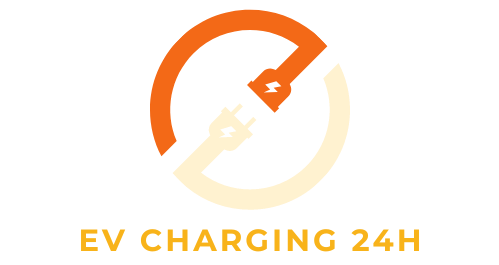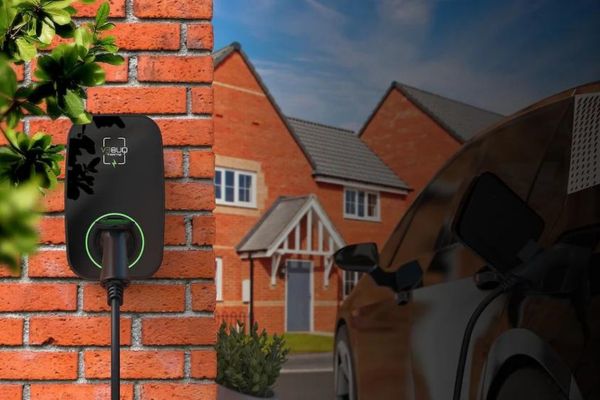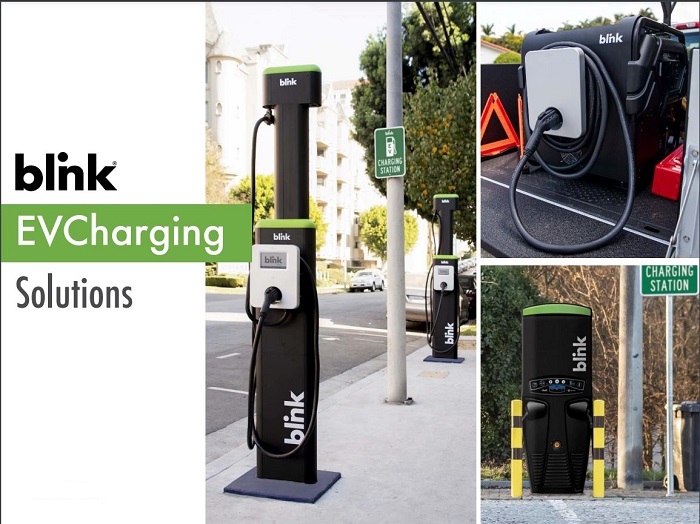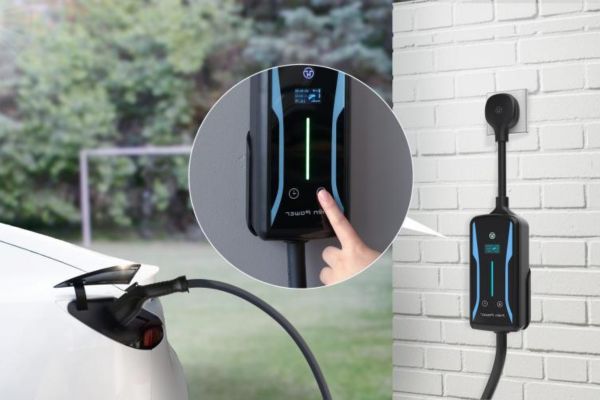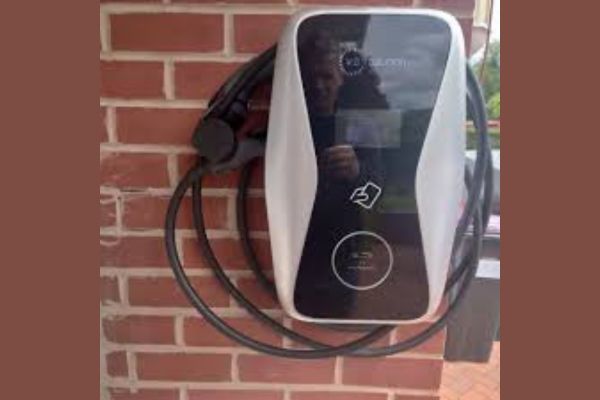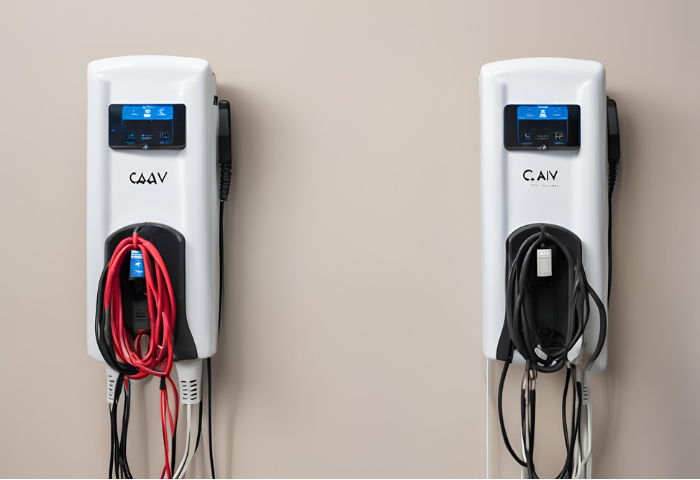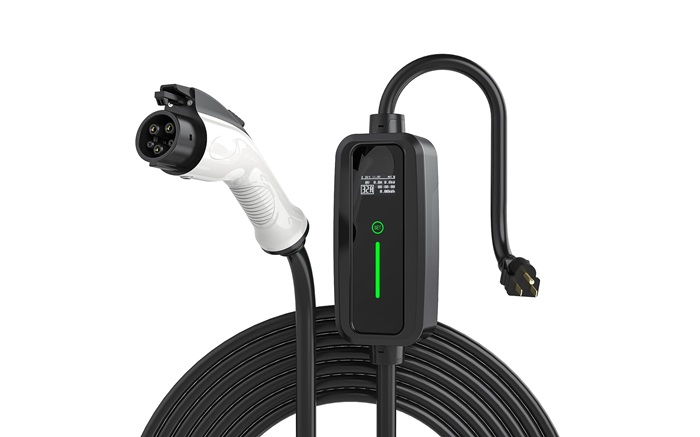Portable 120V-240V J1772 EV Charger for Electric Vehicles: Level 1-2 Charging Station with 16A EVSE 25ft Cable
A 120-volt EV charger, also known as a Level 1 EV charger, uses a standard household outlet (the kind you plug lamps or appliances into) to charge your electric vehicle. While convenient and readily available, it’s significantly slower than a 240-volt charger (Level 2).
What is a 120-volt EV charger?
A 120V EV charger, also known as a Level 1 EV charger, refers to an electric vehicle charging unit that operates on a standard household electrical outlet with a voltage of 120 volts.
A 120-volt EV charger utilizes a standard household outlet (the kind you plug lamps or appliances into) to charge your electric vehicle. It’s the most basic and accessible charging option.
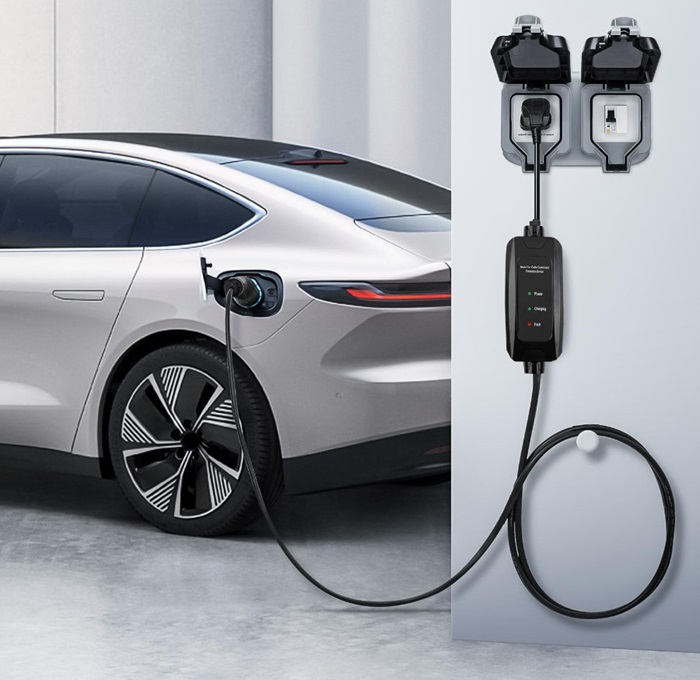
Types of 120V EV Chargers
- Level 1 Chargers: These chargers typically come with electric vehicles and use a standard 120V outlet for charging. They provide slower charging rates compared to higher-voltage chargers.
- Portable Chargers: Some EV manufacturers offer portable chargers that can be plugged into a 120V outlet for on-the-go charging convenience. These chargers are compact and versatile, but they also have slower charging speeds.
Benefits of using a 120-volt EV charger:
- Convenience: They’re readily available and don’t require any special installation. You can simply plug them into a standard outlet at home or anywhere else with a compatible outlet.
- Affordability: They are typically the most affordable option compared to 240-volt chargers or public charging stations.
- Emergency Top-Ups: Useful for occasional top-ups, especially if you have access to charging at your workplace or destination.
Cost of a 120V EV Charger:
- Level 1 chargers are typically included with the purchase of an electric vehicle and are included in the overall cost of the vehicle.
- Portable 120V chargers can be purchased separately and range in price depending on the brand, features, and charging speed.
Where to buy a 120V EV charger:
- Electric vehicle manufacturers often provide Level 1 chargers with the purchase of a new EV.
- Portable 120V chargers can be purchased from online retailers, automotive stores, or directly from EV charger manufacturers.
Demystifying the 120V EV Charger
While a 120-volt EV charger seems straightforward, there’s more to it than meets the eye.
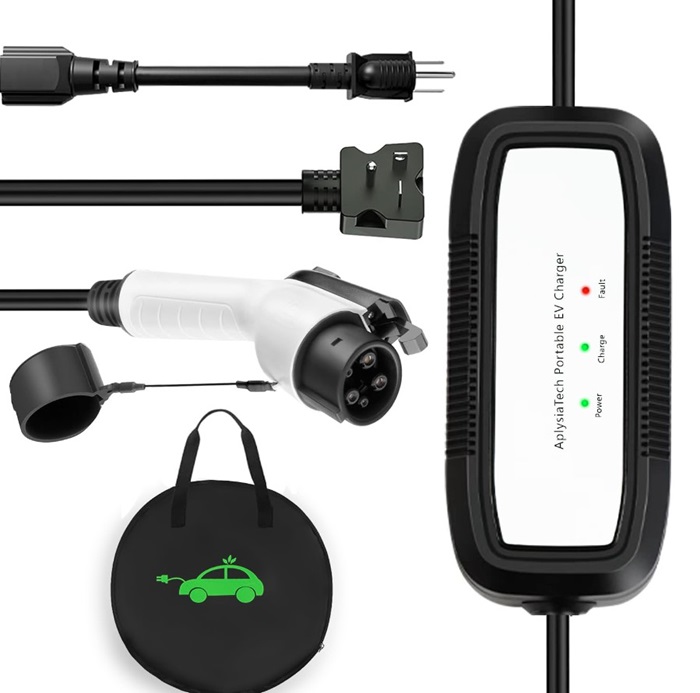
Components of a 120V EV Charger:
- Standard Plug: This end plugs directly into a standard 120-volt household outlet.
- J1772 Connector: This standardized connector on the other end fits into your electric vehicle’s charging port.
- Internal Electronics: These manage the flow of electricity, ensuring safe and controlled charging for your EV battery.
- Cable : The charger might come with a cable of varying lengths. Choose a length that comfortably reaches your charging location.
Installation Process for a 120V EV Charger:
- Locate a standard 120V electrical outlet near the parking spot.
- Plug in the charger.
- Connect the charger to the vehicle’s charging port.
- Activate the charging process through the control panel or the vehicle’s interface.
Safety Precautions:
- Outlet Check: Ensure the outlet you’re using is in good condition, not overloaded with other appliances, and has proper grounding.
- Extension Cords: Avoid using long extension cords, as they can cause voltage drops and overheating, posing a safety risk. If you need more reach, opt for a dedicated EV charging cable with the appropriate length and gauge.
- Heat Dissipation: Allow proper air circulation around the charger while in use to prevent overheating.
- User Manuals: Consult your car’s and charger’s manuals for specific safety instructions.
Maintenance Tips:
Since there are no moving parts or complex mechanisms, 120-volt EV chargers require minimal maintenance. Here are some tips:
- Keep it Clean: Wipe down the exterior with a damp cloth periodically to remove dust or dirt.
- Store Properly: When not in use, store the charger in a cool, dry place to prevent damage from extreme temperatures or moisture.
- Inspect for damage: Regularly check the cable and connector for any signs of wear or tear. If you notice cracks, fraying, or loose connections, discontinue use and replace the charger.
Compatibility with Different EVs:
The good news is that 120-volt EV chargers utilize the universal J1772 connector standard in North America. This means they should be compatible with any electric vehicle sold in the region, regardless of the make or model. However, it’s always a good practice to consult your car’s manual to confirm compatibility and understand the typical charging times with a standard outlet.
A Lexicon of 120V EV Charger Terminology
By understanding these definitions, terms, and acronyms, you can effectively communicate about 120-volt EV chargers and make informed decisions about their suitability for your electric vehicle charging needs.
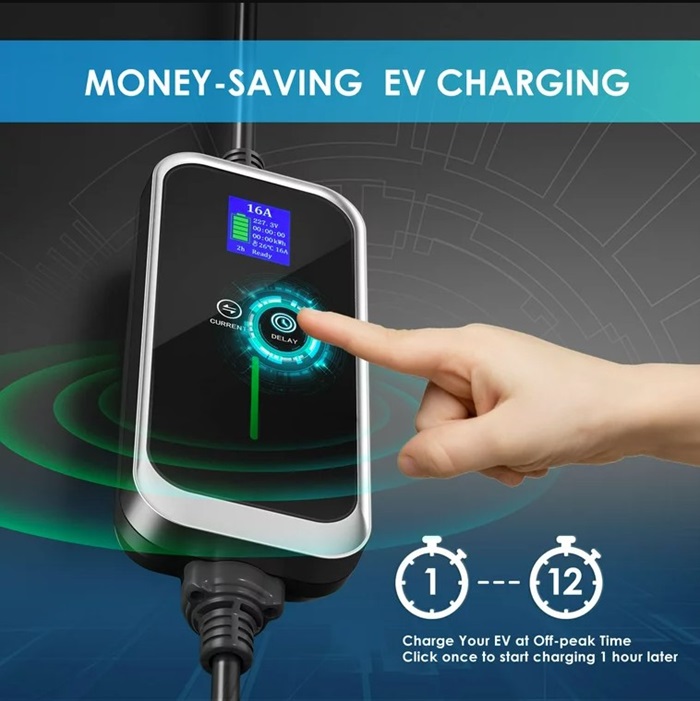
Definitions:
- Voltage (V): Electrical pressure that pushes current through a circuit. A 120-volt EV charger operates on a standard household outlet voltage in North America.
- Amperage (A): The rate of current flow in a circuit. While not typically a direct specification for 120-volt chargers, it relates to charging speed. Higher amperage generally translates to faster charging, but 120-volt outlets provide a limited amperage for charging.
- Charging Levels: These categorize EV charging speeds. A 120-volt charger falls under Level 1 charging, the slowest option. Higher levels (Level 2 and DC Fast Charging) utilize higher voltages and offer faster charging times.
Common Terms:
- Level 1 Charging: This term refers to charging using a standard 120v outlet, synonymous with what a 120v EV charger provides.
- Portable Charger: While all 120-volt chargers are technically portable, this term can sometimes emphasize the convenience of easily moving them around and using them in various locations with compatible outlets.
Acronyms:
- EVSE (Electric Vehicle Supply Equipment): A general term encompassing all equipment used for charging electric vehicles, including 120-volt chargers.
- J1772 Connector: The standardized plug on the end of a 120v EV charger that connects to your car’s charging port.
Comparison of 120V EV Chargers vs. Other Charging Options
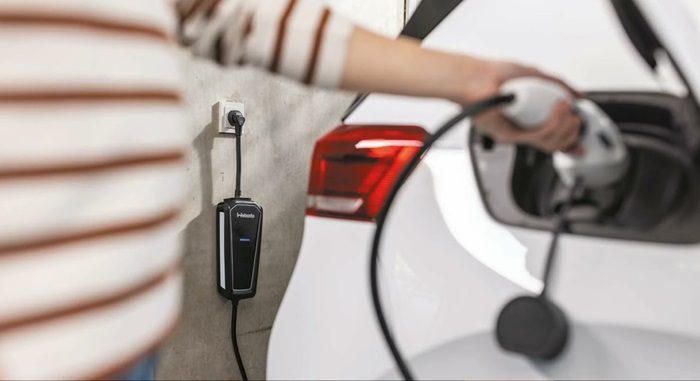
Top Brands Offering 120V EV Chargers
Some of the of the top brands offering 120V EV chargers include AeroVironment, ChargePoint, ClipperCreek, Siemens, and JuiceBox. These brands offer a range of Level 1 charging solutions suitable for residential use.
Customer Reviews and Recommendations for Specific 120V EV Chargers
Customer reviews and recommendations for specific 120V EV chargers can be found on various online platforms, such as Amazon, manufacturer websites, and EV forums. Users often share their experiences with charger performance, reliability, and ease of use, which can help others make informed decisions.
Expert Opinions on the Best 120V EV Chargers in the Market
Expert opinions on the best 120V EV chargers on the market can be found in EV publications, industry reports, and reviews from reputable sources such as Consumer Reports and Edmunds. Experts evaluate chargers based on factors like charging speed, build quality, safety features, and user experience.
Regulations and Standards Governing the Use of 120V EV Chargers
Regulations and standards governing the use of 120V EV chargers vary by region but generally include safety requirements, electrical codes, and installation guidelines. Organizations like the National Electrical Code (NEC) in the United States and the International Electrotechnical Commission (IEC) internationally provide standards for EV charging infrastructure.
Comparison of 120V EV Chargers vs. Other Charging Options
| Feature | 120-volt EV charger (Level 1) | 240V EV Charger (Level 2) | DC fast charging |
| Voltage | 120v | 240v | Up to 400 volts or higher |
| Charging Speed | Slowest | Faster than Level 1 | Fastest |
| Ideal Use | Occasional top-ups | Regular home charging | Long trips, quick charging |
| Installation | Plug-and-play | Requires a qualified electrician | Professional installation |
| Cost | Most affordable | More expensive than Level 1 | Most expensive |
Choosing the Right Option
The best charging option depends on your needs and driving habits. Consider factors like:
- Frequency of Use: If you primarily use your EV for short commutes and have access to charging at your destination, a 120-volt charger might suffice.
- Trip Planning: For longer trips, a 240-volt charger or DC fast charging stations might be necessary for faster charging.
- Budget: 120-volt chargers are the most affordable, while DC fast charging stations can be expensive per use.
These 120V EV chargers typically come with electric vehicles or can be purchased separately as portable units. Common features of 120V EV chargers include plug-and-play installation, compact design, and compatibility with various electric vehicle models.
Users should ensure proper electrical outlet conditions, follow safety precautions, and consider maintenance needs for optimal performance. Additionally, understanding regulations, standards, and expert recommendations can aid in selecting the best 120V EV charger to meet individual charging requirements.

Henry Michael is a leading expert in EV charging station research, specializing in innovative solutions for electric vehicle infrastructure. With a passion for sustainability and technological advancement, he is dedicated to advancing the accessibility and efficiency of EV charging worldwide.
